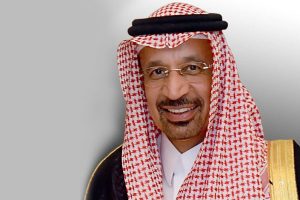 A cabinet reshuffle by King Salman has led to the merging of several ministries in the oil rich kingdom and the new arrival of new ministers; the most noticeable being the appointment of a new oil minister, in the person of Khalid al-Falih.
A cabinet reshuffle by King Salman has led to the merging of several ministries in the oil rich kingdom and the new arrival of new ministers; the most noticeable being the appointment of a new oil minister, in the person of Khalid al-Falih.
The former chairman of the state oil giant Aramco replaced veteran cabinet member Ali al-Naimi who had occupied the post since 1995.
Falih, in his first statement as the minister of the newly created Ministry of Energy, Industry and Natural Resources, said “Saudi Arabia will maintain its stable petroleum policies” hinting that they “remain committed” to their leading role in the international market and strengthen their position “as the world’s most reliable supplier of energy.”
Riyadh’s decision not to cut its supply to the global market but rather protect its market share has not helped to boost oil prices which have fell from more than $100 a barrel in 2014 to below $45 on Friday.
The cabinet reshuffle and merging of some departments are part of King Salman’s plan to diversify the economy. Major changes were also made at the level of the economic leadership, with Majed Al Qusaibi named head of the new Commerce and Investment Ministry, and Ahmed Al Kholifey made governor of the Saudi Arabian Monetary Agency (Sama,) the central bank.
Minister Falih said the creation of the new ministry unites “the Kingdom’s abundant and unrivaled energy and mineral resources and industrial capabilities” and aligns with “the ambitious objectives of Saudi Vision 2030.”
Riyadh has unveiled a plan to use its sovereign fund to increase its investments in strategic domains both locally and internationally as it hopes to be less dependent on hydrocarbons in the near future.
